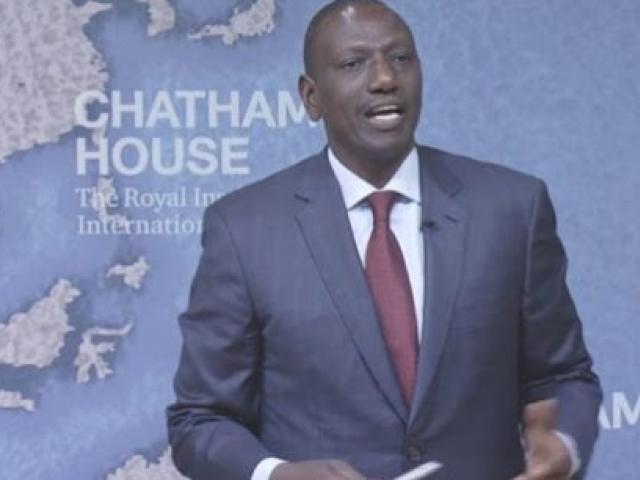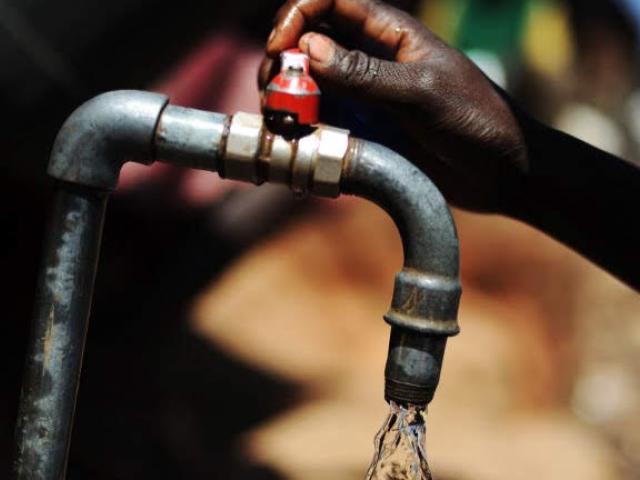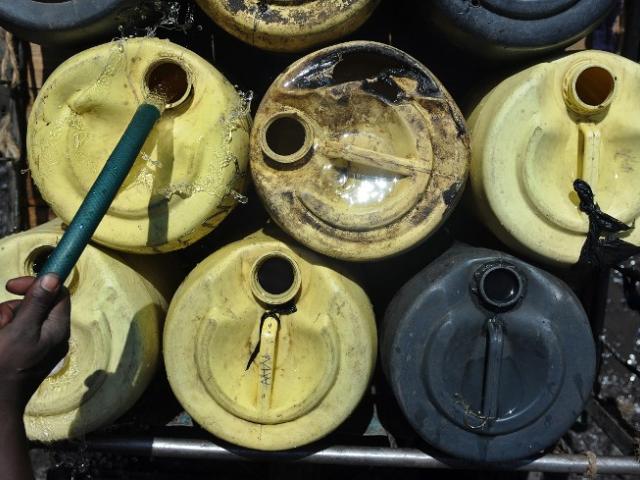-
In a lively interview titled ‘The Ruto story’ Kenyan deputy president William Ruto went on national TV where he tackled various topics of public interest.
-
He was mostly correct in claims about the firing of ministers and the development of public land, and was correct about the party’s manifesto pledge on dams.
-
Ruto was also mostly correct about the extent of Kenya’s arid regions, but incorrect when he said the sacked ministers hadn’t been tried in court.
The fight against corruption and the threat of hunger posed by an unpredictable climate are never too far from Kenya’s fast-paced news cycle.
In a nearly two hour interview on Citizen TV titled ‘The Ruto story’, deputy president William Ruto tackled various topics of national interest.He made a number of claims, five of which we checked accuracy.
We contacted the deputy president’s office for his evidence for the claims. We will update this report with their response.
In his 2015 state of the nation address, President Uhuru Kenyatta asked officials named in a confidential Ethics and Anti-Corruption Commission report to step aside until they were cleared.
Two weeks later, the president’s office suspended four cabinet secretaries: Felix Koskei, Michael Kamau, Kazungu Kambi and Davis Chirchir. Another minister, Charity Ngilu, stepped down days later.
Seven months later the five were dropped from cabinet in a reshuffle. A few days before, minister Anne Waiguru had resigned on health grounds. But she’d been under public pressure following a reported loss of funds from her ministry.
So Ruto wasn’t all that accurate to say six ministers were asked to step aside - five were. Waiguru’s resignation brought the number to six. We therefore rate this claim as mostly correct.
In 2015 the anti-corruption agency charged former transport cabinet secretary Michael Kamau in court for failing to comply with procurement laws. So Ruto wasn’t correct when he said none of the ministers dropped by Kenyatta were charged in court.
Former lands minister Charity Ngilu was also charged, for “breach of trust” by a public official.
They were both acquitted after successfully challenging the composition of the ethics agency. But Kamau was back in court in April 2019, on the same charges.
The Land Act sets out how public land can be allocated to private individuals, businesses and foreign governments.
“Where the land allocated … is not developed in accordance with the terms and conditions stipulated in the lease, that land shall automatically revert back to the national or county government, as the case may be,” the law says.
“The presumption is that when you are given [public] land you must put it into good use as stipulated in the lease agreement. That is what guides the transaction,” David Mufuayia of land rights lobby the Kenya Land Alliance told Africa Check.
For example, public land provided under the export processing zone law must be developed within two years.
But it is not always this clear cut. “It is very difficult to apply [the two-year-rule] across the board, because the land is normally leased specific to the use,” said Ibrahim Mwathane, chair of the Land Development and Governance Institute.
“The government would normally attach a whole lot of conditions on a lease, and one would need to look at those conditions and decide whether they have been complied with or contravened.” Mwathane is also a columnist on land issues for the country’s Daily Nation newspaper.
If Kenya was to be fed, much if not all of the “85%” of the country that was “arid and semi-arid” would need to be irrigated, deputy president Ruto said.
The country’s development plan for northern Kenya and other arid areas, released in 2012, classifies nine of Kenya’s 47 countries as arid, and 14 counties as semi-arid.
These 23 counties account for 89% of the country’s total land area and four in every 10 Kenyans live there, the document says. It was produced as part of Kenya’s Vision 2030 growth plan.
The arid and semi-arid areas are prone to drought, it says, and lag behind the national average on many development indicators. The main challenge “is how to ensure food and nutrition security” there.
In its new strategic plan for 2019 to 2029, Kenya’s agriculture ministry also estimates the share as 89%.
But the devolution ministry gives the share as 83%, as did the World Bank in an April 2019 paper that urged more irrigation to reduce dependence on unreliable rainfall.
The Jubilee party had pledged in its manifesto to build “57 mega dams” to provide more food and water to Kenyans, Ruto said.
The party’s 2017 manifesto commits to complete “57 large-scale dams currently under construction” within the next five years. Some of the projects are listed on the presidency’s delivery website.
But different numbers and timelines for the dams have been given recently. In a March 2019 speech on World Water Day, water minister Simon Chelugui said the 57 dams would be built between 2018 and 2028.
The same month, the principal secretary for irrigation said “10 large dams” would be constructed.
And the final version of the water ministry’s strategic plan for 2018 to 2022 waters them down to 57 “medium size” dams.





Add new comment